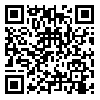BibTeX | RIS | EndNote | Medlars | ProCite | Reference Manager | RefWorks
Send citation to:
URL: http://jdisabilstud.org/article-1-2446-en.html
2- Department of Psychology, Ahvaz Branch, Islamic Azad University
3- Department of Psychology, Dezful Branch, Islamic Azad University
Background & Objectives: Diabetes is a silent epidemic and is a significant growing health challenge. The most important strategy used to manage this disease is proper control of blood sugar in the normal range using modifiable factors. A large part of these control measures is the patient's responsibility. There are two different strategies for improving social functioning, blood sugar control, emotion regulation, and hope in patients with type 2 diabetes. One of these strategies is self–care education. Self–care in this disease is one of the most important factors to control the disease. Self–care has a special role in the care of chronic diseases. Self–care activities have a great impact on the physical and mental performance of patients with diabetes. Due to the many physical and psychological problems of patients with diabetes, the development of chronic complications and disabilities and high costs, this study aimed to determine the effectiveness of self–care education on hope, emotion regulation, blood sugar control and social performance in patients with diabetes.
Methods: The method of the present study was quasi-experimental with a pre-test–post-test and follow–up design with a control group of patients with type 2 diabetes referred to medical centers and the Isfahan Diabetes Association. Patients were in the age range of 30 to 60 years. Convenience Sampling for qualified volunteers and purposive used. They were assigned to two random groups:1. the self–care education group (n=15) and 2. the control group (n=15). Criteria for inclusion of patients in the study include: confirmation of type 2 diabetes by a physician, age over seventeen, having a minimum literacy, lack of brain diseases such as delirium, dementia, and learning disabilities, no speech and hearing disorders, and no use of drugs that affect the condition Behavioral and psychological, no history of participating in similar studies in the last six months, no secondary problems such as mental illness, blood pressure above 160/100, chronic kidney disease and severe heart disease or any other serious illness and willingness to participate in the study. The data were obtained using the glycosylated hemoglobin test (A1C), Cognitive Emotion Regulation Questionnaire (Garnefski et al., 2001), Social Performance Questionnaire (Lokmet et al., 2014), and the Hope Scale (Snyder et al., 1991). The experimental group received self–care training in five sessions on a weekly basis. However, no intervention was provided for the control group. This study used descriptive statistics, including frequency, percentage, mean and standard deviation, and inferential statistics, including the chi-square test, repeated measures analysis of variance, and Bonferroni post hoc test, in SPSS software version 22. The significance level of the tests was considered 0.05.
Results: The results showed that the analysis of the variance of the hope variable was significant for the within-group factor (time) (p<0.001) and between-group factor (p<0.001). The variance analysis of the emotion regulation variable was significant for the within-group factor (time) (p<0.001) and the between-group factor (p=0.003). Analysis of variance of blood sugar variable was significant for within-group factor (time) (p<0.001) and between-group factor (p=0.007). Analysis of variance of a social functioning variable was significant for within-group factor (time) (p<0.001) and between-group factor (p<0.001). This result means a significant difference between the two groups in all four variables of hope, psychological emotion regulation, blood sugar, and social functioning during the research phases, indicating the effect of an intervention. The mean scores of hope, emotion regulation, and social performance variables in the experimental group and the post-test stage were higher than in the pre-test (p <0.001). The results showed that the mean scores of hope, emotion regulation, and social performance in the follow–up stage were significantly different from the pre-test stage in the experimental group (p<0.001). However, there was no significant difference between the two stages of post-test and follow–up in the experimental group in the variables of hope, emotion regulation, and social performance. The results also showed that the scores of variable blood sugar in the experimental group and the post-test stage were lower than in the pre-test (p<0.001). Scores of variable blood sugar in the follow–up stage were significantly different from the pre-test stage in the experimental group (p<0.001), But no significant difference was observed between the two stages of post-test and follow–up in the experimental group. The results showed that the effectiveness of self–care training in the follow–up phase was stable for the variables of hope, emotion regulation, social functioning, and blood sugar.
Conclusion: According to the study's findings, self–care education effectively increases hope, emotion regulation, and blood sugar control and improves the social functioning of patients with type 2 diabetes. Therefore, this method can be used alongside other education for diabetic patients.
| Rights and permissions | |
 |
This work is licensed under a Creative Commons Attribution-NonCommercial 4.0 International License. |



